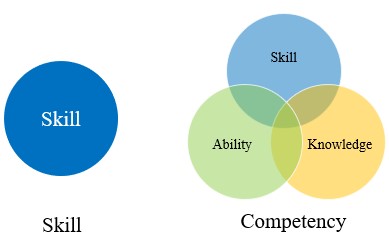Book: Data-Driven Innovation Big Data for Growth and Well-Being
Chapter 6: Skills and employment in a data-driven economy.
Page No. # 237 – 272
Presenter: NORASING Anouluck (Tom)
Date: 30/06/2022
Keywords: Labor market, intelligent applications, employment polarization, data specialist skills.
Greetings to everybody. Here is Tom! I recently enrolled as a research student in the Abe Research Group in April 2022. For the first time, I am taking part in the lab activity as the book discussion. This week is the 8th week of the book discussion, and now it is my turn to review what was covered in chapter 6, titled “Skills and employment in a data-driven economy.”
- SUMMARY OF PRESENTATION
This chapter mainly discusses the skills and employment consequences of data-driven innovation (DDI) and how it can affect the employment and labor market. In the book discussion this week, the forum has two intriguing problems (6.1 & 6.2).
- One, the DDI could further strain the labor market, mainly middle-class jobs such as white-collar and blue-collar jobs. As a result, it enables data-driven and analytics-enabled apps to execute various cognitive and physical tasks. The first part shows that DDI can lead to structural change in the labor market. After that, discuss skills and competencies and how they matter for existing and future jobs.
- Second, rather than concentrating on data specialist skills and competency, it explores the consequences of how DDI could lead to structural change in the labor market. Then, how demand for specialized skills may exceed supply would hinder the economic acceptance of DDI and the restoration of jobs.
Creative destruction in labor markets.
According to the book, DDI provides enormous opportunities for business creation across the data ecosystem for start-ups, including small and medium enterprises (SMEs). Many offer new goods and services that could lead to further job creation opportunities, as discussed in much detail in the previous chapter (Chapter 2).
The main key point of this part shows that applying ICTs to the economy can also increase the demand for new skills and jobs. However, the book mentioned that many observers are concerning the high risk that intelligent applications will further broaden the employment polarization. It may negatively affect middle-class income jobs such as white-collar and blue-collar jobs.
For instance, in the US, more than half of all financial market trades use an algorithm trading system (STS) for trading. In health care, such as radiologists and oncologists, intelligent applications can represent a pattern of diagnoses, therapies, and treatments using medical records, magnetic resonance imaging (MRI), and other medical images. Another example is that robots are used widely in manufacturing with much more extensive capabilities, which can affect manual labor in blue-collar jobs such as manual labor, agriculture, construction, mining, or maintenance.
In addition, the author mentioned that the increase in employment polarization has consequences on the skills and competencies that directly affect the future workforce. It means that DDI can open up opportunities for labor productivity growth through job reductions and work augmentation or enhancement when more effective technologies become available. Therefore, skills and competencies are needed for existing and future jobs. Skills are described as particular learning activities, and they range widely in terms of complexity. While competencies identify the observable behavior that performers demonstrate on the job or in a concise way, those behaviors result from various abilities, skills, and knowledge. Nevertheless, developing these skills seems to require national education
systems capacities.
Figure 1: Implications of skills and competency
The growing importance of data specialist skills and employment
Some parts of the book mentioned that data analytic service providers, data brokers, and data explorers are a few examples of the latest companies and business models that DDI is promoting. Furthermore, evidence points to a higher likelihood for enterprises with better access to data specialist skills to see quicker productivity development through DDI.
According to some evidence in the book, there is a greater demand for data specialists than available jobs. In 2018, The McKinsey Global Institute (MGI) predicted a 140,000 to 190,000-position gap between demand and supply for profound analytical roles in the US. The second significant barrier to data analytics is reportedly a lack of qualified individuals to correctly analyze the data.
Moreover, meeting privacy and security expectation requires more than legal compliance and security practices. Because of that, the need for experts in security and privacy is increasing. According to figure 6.17 (page 270), Security expertise trends to steady growth in demand while the privacy professionals’ growth has been rapidly accelerating in recent years (2003-2013).
- DISCUSSION AFTER THE PRESENTATION
- Will the data specialist skills exceed the labor market in the future? E.g., 2022
Regarding the question, the data specialist skill may exceed the labor market if all occupations consider data knowledge as a part of their responsibility. Other opinions from our lab members also think the education transition can be the essential keyword to make the skills of a data expert more in demand.
- As figure 6.17, why does the growth of privacy professionals seem to increase more rapidly than the growth in demand for security?
Nowadays, I believe that privacy will be a factor in legislation, internet safety, and mobile platform difficulties. Through my research, I found that privacy worldwide laws and practices make it extremely challenging to conduct business internationally. Because each country has its regulations in terms of privacy, instead of adding privacy features later, goods and services must be designed with privacy in mind from the beginning. Because of all these reasons, it can make the number of privacy professionals more increase rapidly than cybersecurity professionals. According to our group discussion, beware of personal information getting leaked is trending in the community as we heard or experienced in the current situation.
